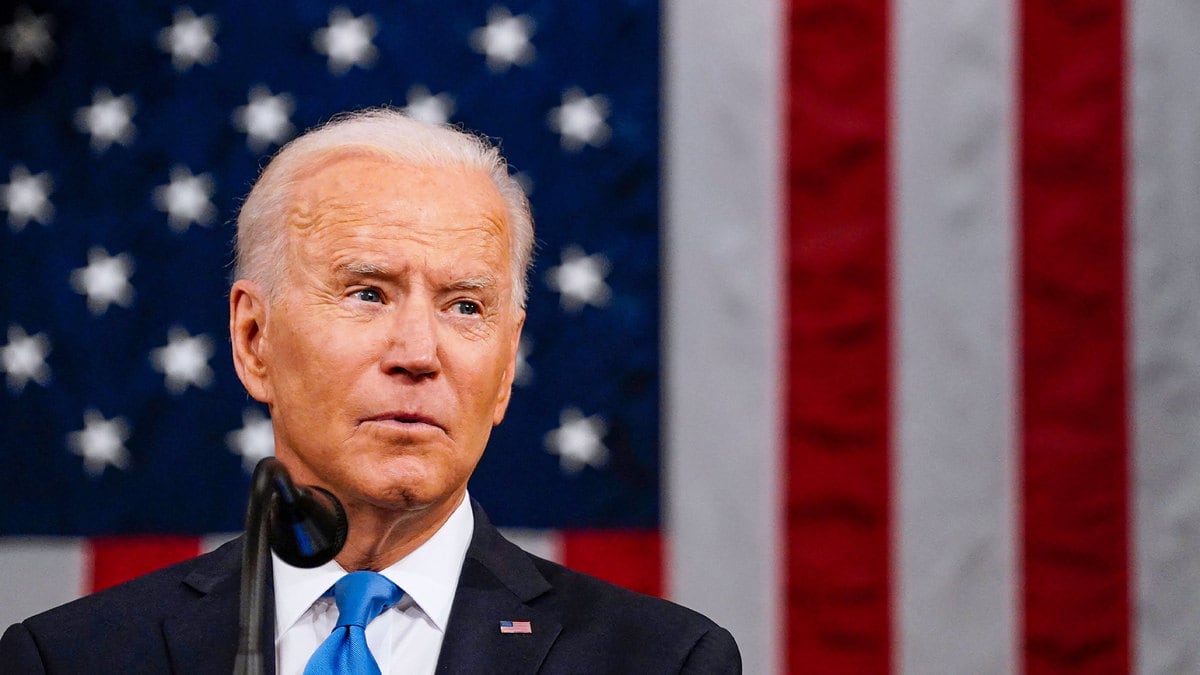On Friday, the Associated Press’s politics feed described the House’s passage of Joe Biden’s “Build Back Better” plan thusly: “A sharply divided House has passed an expansive social and environment bill, a win in President Biden's drive to use Democrats' control of government to funnel resources toward their domestic priorities. Changes to the bill are likely in the Senate.”
The AP really has to stop letting Ted Cruz run their Twitter feed. Seriously, even I, a conservative writer and alleged (by some) Trump shill, found this interpretation to be overly negative.
So what’s the truth? Is this a big deal or a little deal? Would you settle for medium?
Just a few weeks ago, there was a non-zero chance that linking this party-line reconciliation vote to the bipartisan infrastructure bill might have scuttled both bills, effectively ending Joe Biden’s legislative agenda. Then, the bipartisan infrastructure bill passed, resulting in less leverage for progressives to pass Build Back Better. It could have simply withered on the vine. But that also didn’t happen. Now, instead of going 0-for-2, Biden seems to be on the glide path for passing two significant agenda items. Take that, AP!
We can engage in revisionist history and suggest that Biden would have been better off had he bypassed hostage negotiations with progressives and quickly pushed the bipartisan bill through right after the Senate passed it in August. But that’s water under the bridge. What happened instead was slow and sloppy, but Democrats finally did pass the bipartisan bill, and now seem to be on track to pass a scaled-down version of Build Back Better. As famed NFL coach Bill Parcells says, “You are what your record says you are.” Democrats are—with an incredibly slim majority—putting points on the board.
It’s fair to point out that if BBB ever becomes law, however, it will look different from what passed on Friday ($1.75 trillion)—and it will look dramatically different from progressives’ more expansive initial vision.
The truth is, if BBB passes, it will essentially be written by West Virginia Sen. Joe Manchin, and progressives will have to swallow that.
Manchin has all the leverage, and failing to pass BBB would demoralize the base heading into the midterms (ironically punishing moderate Democrats who are the most vulnerable to defeat—another reason for Manchin to get to “yes”).
Manchin will insist on something that is ostensibly deficit neutral, unlike the plan that passed the House on Friday (according to the Congressional Budget Office, BBB would add $367 billion to the deficit). Removing paid family leave (as Manchin insists) would help close the gap on the cost problem. A BBB law also won’t include things progressives initially wanted like free community college. And instead of the child tax credit going to every parent, it will likely be means-tested (meaning that only lower-earning families would be eligible). Aside from budgetary matters, Manchin has also said the reconciliation bill must include the Hyde Amendment, which bars the use of taxpayer funds for abortions in most cases. It also won’t include climate provisions that could hurt West Virginia’s coal industry.
This is a long way of saying that Friday’s vote was a step toward a watered-down version of BBB eventually becoming law. But whatever watered-down version finally passes, it’s important to note that this will still be the most sweeping social spending policy bill in U.S. history. That would make BBB a BFD—if it passes.
The next question is, how much will this matter politically?
As a conservative, I would vote against this bill. But substance aside, the politics are obvious. A win is a win.
That said, the short-term political benefits of passing BBB seem marginal, at best.
Biden has 99 problems, but the most worrisome is inflation. Now, we can argue over whether BBB will contribute to that (Biden swears it will be “paid for,” which means it won’t inject money into the economy). But one thing is for sure: BBB won’t—between now and the November 2022 midterm elections—solve inflation.
That’s OK. Biden is betting on a long game. He’s betting that things will turn around. That COVID-19 and the supply chain problems, which he believes are the main driver of this bout of inflation, will both subside. And he’s praying that the investments we’re making in infrastructure (both physical and “human”) will kick in before 2024. Make no mistake, it requires faith to believe these things will work out. But it’s not an implausible scenario. And even if things don’t turn around, Biden’s betting that history will remember him for his legislative accomplishments—for the points he’s putting on the scoreboard.
Seen through that prism, BBB’s passage in the House this week is one small, but important, step in the right direction. It seems to suggest that Biden is on track to eventually pass what would be a dramatic piece of legislation.
That may not be good for the country—and it won’t do much to help Biden get out of the ditch he’s in regarding his sagging approval numbers. But let’s not kid ourselves. A win is a win.







